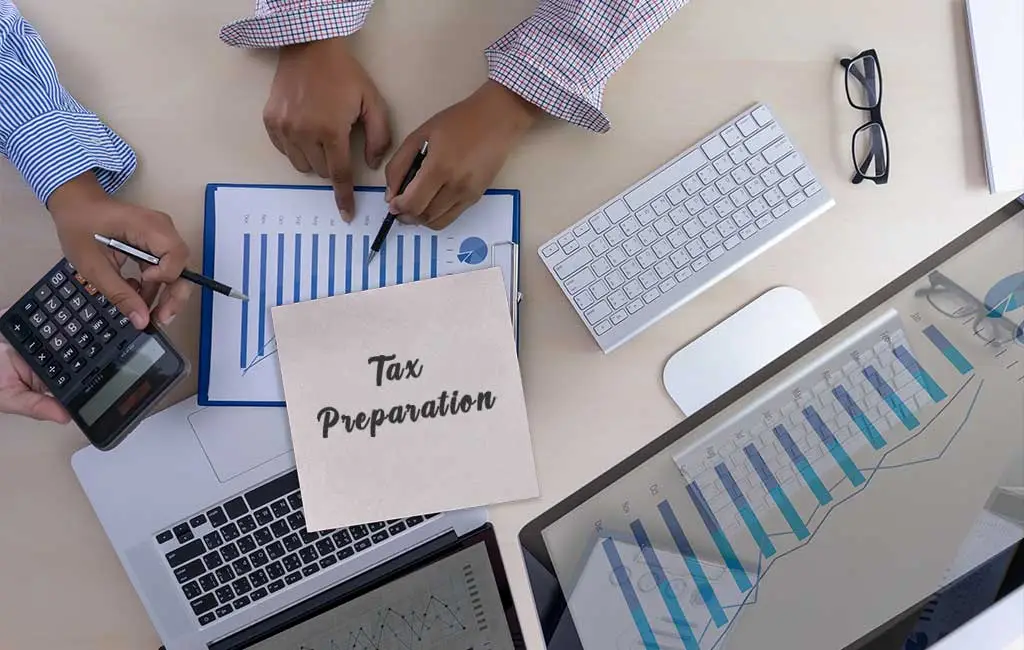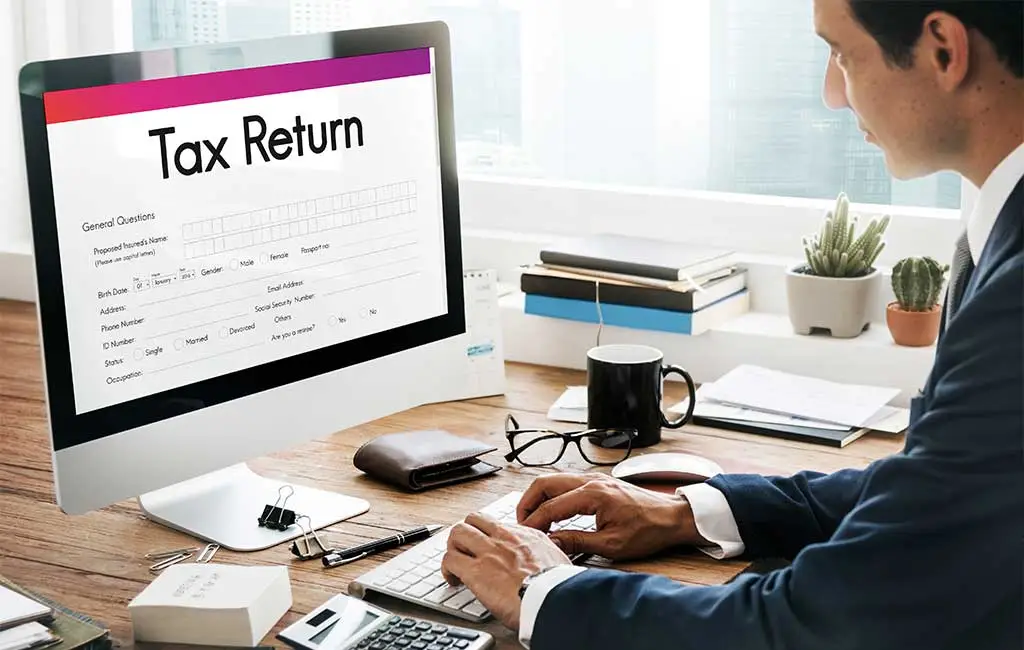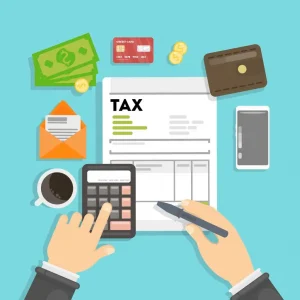When evaluating the average cost of tax preparation by CPA, it’s crucial to consider the relief it can bring during the often stressful tax season for both individuals and businesses. The pressure to accurately navigate through numerous forms, regulations, and deadlines can be overwhelming, especially if you’re not familiar with the complexities of tax law. This is where the expertise of a Certified Public Accountant (CPA) becomes invaluable. CPAs are trained professionals who can simplify the tax preparation process, ensure compliance with tax regulations, and potentially save you a significant amount of money.
However, one of the most common questions that arise when considering hiring a CPA is the cost involved. How much does it really cost to have your taxes prepared by a CPA? Understanding the average cost of tax preparation by CPA is essential for budgeting and making an informed decision. The cost can vary widely depending on several factors, including the complexity of your tax situation, your geographic location, and the CPA’s level of experience and reputation.
In this article, we will delve into the various elements that influence the average cost of tax preparation by CPA. We will provide a detailed breakdown of average costs, offer tips on finding the right CPA for your needs, and discuss the benefits of working with a CPA. Additionally, we will explore alternatives to using a CPA for tax preparation and share practical tips to help you save on tax preparation costs. By the end of this article, you’ll have a comprehensive understanding of what to expect in terms of costs and how to make the best choice for your tax preparation needs.
What is Tax Preparation?
Tax preparation is the process of compiling financial records, understanding applicable tax laws, and accurately completing tax returns to fulfill local, state, and federal requirements. It involves meticulous attention to detail and a solid grasp of the ever-evolving tax codes to ensure compliance and maximize potential tax savings. Tax preparation can be approached in several ways, depending on the complexity of the taxpayer’s financial situation and their comfort level with tax laws.

Individuals with straightforward tax situations might choose to prepare their taxes on their own. This approach can be cost-effective but requires a good understanding of the tax forms and regulations involved. For those who prefer some guidance but still want to handle their taxes independently, tax preparation software offers a user-friendly solution. Programs like TurboTax or H&R Block provide step-by-step instructions and can simplify the process significantly.
However, for more complex tax situations, hiring a professional, such as a Certified Public Accountant (CPA), is often the best choice. CPAs are highly trained professionals who have passed rigorous exams and met specific state requirements to earn their certification. Their extensive knowledge and expertise allow them to handle complicated tax scenarios efficiently and accurately.
CPAs can offer valuable advice beyond mere tax preparation. They are adept at strategic tax planning, helping clients minimize their tax liabilities and make informed financial decisions throughout the year. This expertise is particularly beneficial for business owners, high-net-worth individuals, or anyone with intricate financial affairs, such as investments, rental properties, or multiple income sources.
Tax preparation is a critical process that ensures compliance with tax laws and maximizes potential savings. Whether done individually, with the help of software, or through the expertise of a CPA, it is essential to approach tax preparation with care and attention to detail.
Understanding the Cost of Tax Preparation by a CPA
When considering hiring a Certified Public Accountant (CPA) for tax preparation, it’s important to understand that costs can vary widely. Several key factors influence these costs and knowing them can help you budget effectively and choose the right CPA for your needs.
Complexity of Your Tax Situation
One of the most significant determinants of cost is the complexity of your financial situation. The more intricate your tax return, the more you can expect to pay. For example:
Multiple Income Sources: If you have various income streams, such as wages, freelance work, rental income, or investment earnings, your tax return will be more complicated.
Investments: Those with substantial investments, including stocks, bonds, or mutual funds, often require more detailed tax preparation.
Business Ownership: Owning a business, whether small or large, adds another layer of complexity to your tax situation, increasing preparation costs.
Geographic Location
Where you live also impacts the cost of tax preparation. CPAs in urban areas or regions with a high cost of living generally charge more for their services than those in rural areas. For example:

Urban Centers: In cities like New York or San Francisco, expect higher fees due to the elevated cost of living and higher demand for CPA services.
Rural Areas: In contrast, CPAs in smaller towns or rural areas might charge less, reflecting lower living costs and demand.
Experience and Reputation
The CPA’s experience and reputation significantly affect their fees. More experienced CPAs who have built a strong reputation tend to charge higher rates. This is because:
Expertise: Experienced CPAs bring a wealth of knowledge and can handle complex tax situations efficiently.
Demand: CPAs with excellent reputations are often in higher demand, allowing them to command higher fees for their services.
Time Required
Finally, the amount of time a CPA needs to spend on your tax return will influence the cost. CPAs typically charge by the hour, so:
Detailed Returns: If your tax situation requires extensive documentation and analysis, it will take more time and result in higher fees.
Efficiency: Well-organized records and clear communication can help reduce the time needed and, consequently, the cost.
By understanding these factors, you can better anticipate the cost of hiring a CPA for your tax preparation needs and make informed decisions that align with your budget and tax complexity.
The Cost of Hiring a CPA for Taxes in the USA
Hiring a CPA for tax preparation in the USA can vary significantly depending on several factors. On average, the cost ranges from $200 to $500 for simple tax returns, but for more complex returns, the cost can easily rise to $1,000 or more.
Simple Tax Returns
For individuals with straightforward tax situations, such as single filers with a single source of income and no itemized deductions, the cost is generally on the lower end of the spectrum.
These simple tax returns typically cost between $200 and $300. The process is relatively straightforward, requiring less time and effort on the part of the CPA, which keeps the costs down.
Moderately Complex Returns
If you have multiple income sources, such as investments, rental properties, or self-employment income, the complexity of your tax return increases. This category often includes individuals who itemize deductions or have various financial accounts.
For these moderately complex returns, you can expect to pay between $300 and $600. The additional paperwork and necessary expertise to handle these varied income streams justify the higher fees.
Highly Complex Returns
For business owners, individuals with extensive investments, or those dealing with estate taxes, the tax preparation process is far more intricate. These highly complex returns can range from $700 to well over $1,000.

Business owners often have numerous deductions, credits, and other considerations that require extensive knowledge and time to address properly. Similarly, managing extensive investment portfolios or handling estate taxes demands a high level of expertise and meticulous attention to detail.
Geographic Variations
Location also plays a significant role in determining the cost of hiring a CPA. In urban centers like New York City or Los Angeles, rates are typically higher compared to smaller towns or rural areas. The cost of living and demand for services in these metropolitan areas drive up the prices.
Getting an Estimate
Given these variations, it’s essential to get an estimate from a CPA based on your specific tax situation. Many CPAs offer consultations where they can assess your needs and provide a tailored quote. This ensures you have a clear understanding of what to expect and can budget accordingly for their services.
Average Cost of Tax Preparation by CPA
Understanding the average cost of tax preparation by CPA (Certified Public Accountant) can help you plan your finances better and make an informed decision about whether to hire professional help. Based on various sources and industry standards, here’s a detailed breakdown of the average costs you can expect when hiring a CPA for tax preparation:
Basic Returns: For individuals with straightforward tax situations, such as single filers with one source of income and no itemized deductions, the cost typically ranges from $200 to $300. This service includes preparing and filing your federal and state tax returns.
Itemized Deductions: If you have itemized deductions, such as mortgage interest, charitable donations, or significant medical expenses, the cost increases. The average fee for returns with itemized deductions falls between $400 and $600. Itemizing requires more detailed work to ensure all eligible deductions are accurately reported, which accounts for the higher fee.
Self-Employed/Sole Proprietors: For those who are self-employed or operate as sole proprietors, the complexity of tax preparation increases due to additional forms and schedules. This includes accounting for business expenses, home office deductions, and self-employment taxes. Costs for these returns typically range from $500 to $800.
Small Business Owners: Tax preparation for small business owners is often the most complex, as it involves detailed bookkeeping, payroll taxes, business expenses, and potential depreciation of assets. Fees for small business tax returns start at $800 and can increase significantly depending on the complexity of the business operations and the thoroughness of the records provided.
These averages provide a general idea of the costs involved, but actual prices can vary based on several factors. Your geographic location, the specific CPA’s experience and reputation, and the unique details of your financial situation can all influence the final cost. It’s always a good idea to consult with multiple CPAs to get accurate quotes tailored to your specific needs.
By comparing rates and services, you can find a CPA who offers the best value for your particular tax situation. This approach not only helps you budget more effectively but also ensures you receive the professional assistance that best suits your financial needs.
Finding the Right CPA for Your Needs
Selecting the right Certified Public Accountant (CPA) is essential for accurate and efficient tax preparation. The right CPA can save you time, stress, and potentially a lot of money. Here are some tips to help you find the perfect match for your tax needs:

Ask for Recommendations: Word of mouth remains one of the most reliable methods for finding a trustworthy CPA. Ask friends, family, or colleagues for their recommendations based on personal experiences.
Check Credentials: Verify that the CPA is licensed and in good standing with your state’s board of accountancy. This ensures they have met the necessary educational and professional standards.
Experience Matters: Consider the CPA’s experience, especially if you have specific tax needs. Whether you need help with individual taxes, business taxes, or investment-related taxes, finding someone with relevant expertise is crucial.
Interview Multiple CPAs: Don’t settle for the first CPA you come across. Interview several candidates to understand their approach, fee structure, and how comfortable you feel with them. This helps you compare different professionals and choose the one who best fits your requirements.
Read Reviews: Online reviews can provide valuable insights into a CPA’s reputation and client satisfaction. Look for consistent positive feedback and be cautious of any recurring negative comments.
By following these tips, you can find a CPA who meets your specific needs and provides peace of mind during tax season. Taking the time to choose the right professional can lead to a smoother tax preparation process and better financial outcomes.
Add Your Heading Text Here
Partnering with a CPA offers a range of advantages that extend far beyond just filing your tax returns. Here are some key benefits:
Expertise: CPAs possess extensive knowledge of tax laws, enabling them to navigate complex tax situations effortlessly.
Accuracy: They ensure your tax return is accurate, significantly reducing the risk of errors and potential audits.
Time-Saving: Hiring a CPA saves you valuable time and alleviates the stress associated with tax preparation, allowing you to focus on other important tasks.
Financial Planning: CPAs provide valuable advice on financial planning, helping you make informed decisions throughout the year that can optimize your financial health.
Audit Support: In the event of an audit, having a CPA represent you can be incredibly advantageous, offering peace of mind and professional support.

These benefits highlight why working with a CPA is a wise investment. Their expertise not only ensures compliance and accuracy but also offers strategic financial guidance and support in complex situations, making the entire process of tax preparation more efficient and less stressful.
Alternatives to Using a CPA for Tax Preparation
While CPAs provide exceptional value, they aren’t the only option for tax preparation. Consider these alternatives:
Tax Software: Programs like TurboTax and H&R Block offer user-friendly, guided tax preparation at a much lower cost than hiring a CPA. They are ideal for straightforward tax situations.
Enrolled Agents (EAs): These are federally-authorized tax practitioners who can prepare taxes and represent taxpayers before the IRS. They are well-versed in tax matters and usually charge less than CPAs.
Tax Attorneys: For complex tax issues or legal matters, tax attorneys are the best choice. They have specialized legal knowledge but tend to be more expensive than both CPAs and EAs.

Free Filing Services: The IRS offers Free File for taxpayers with simple returns. Additionally, some volunteer programs provide free tax assistance to those who qualify, making it an excellent option for those on a tight budget.
Each alternative has its pros and cons, so choose the one that best fits your tax situation and budget.
Tips to Save on Tax Preparation Costs
If you’re looking to save on tax preparation costs, consider these tips:
Organize Your Documents: The more organized you are, the less time a CPA needs to spend, which can reduce costs.
Understand Your Tax Situation: A basic understanding of your tax situation can help you communicate more effectively with your CPA.
Compare Rates: Don’t hesitate to shop around and compare rates from different CPAs.
Use Free Resources: Utilize free resources and tools provided by the IRS and other organizations.
Negotiate Fees: Some CPAs may be open to negotiating their fees, especially if your return is straightforward.

Wrapping Up
Navigating the costs and benefits of tax preparation by a CPA is crucial for making informed decisions. While the average cost of tax preparation by CPA can vary based on several factors, understanding these can help you budget accordingly and choose the right professional for your needs.
Whether you opt for a CPA, tax software, or another alternative, the key is to ensure your taxes are filed accurately and on time. By doing so, you can save money, avoid penalties, and potentially maximize your tax refund.







